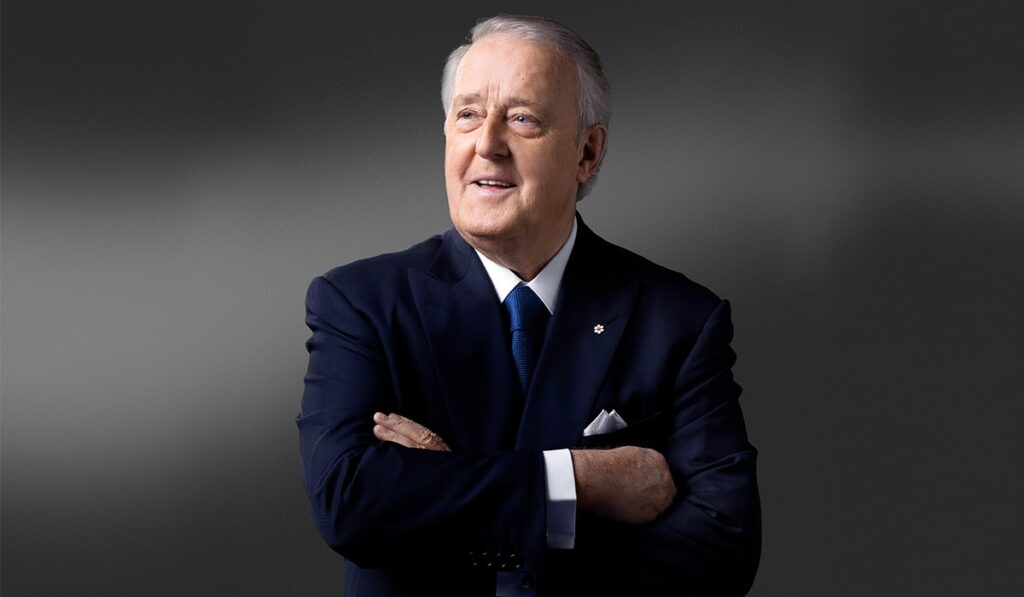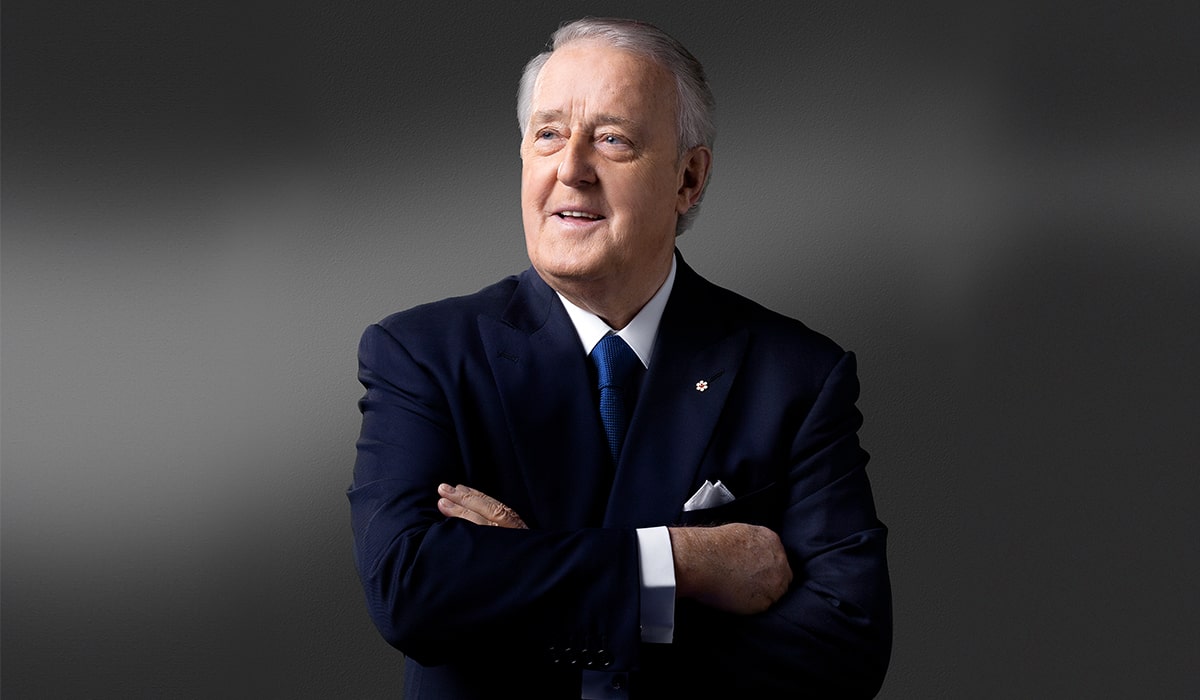Brian Mulroney: Canadian Titan

The passing of Brian Mulroney marks the loss of a Canadian and international statesman.
For a mid-sized country of 40 million people, Canada has always punched above its weight on the global stage, and there might be no politician in recent times who has symbolized that more than the country’s 18th Prime Minister, Brian Mulroney, who died peacefully, at age 84, on February 29, 2024.
Perhaps it was fitting that Mulroney died on a Leap Year Day since he was a rarity himself. A self-made man, he came from a humble background in rural Quebec and rose to the top of the international power élite. The son of a paper-mill electrician, he achieved such gravitas and international esteem that he delivered the eulogies at the funerals of not just one but two U.S. presidents.
Mulroney was a man who developed close personal friendships with Ronald Reagan, Margaret Thatcher and Pope John Paul II. He was equally comfortable and happy dining with Queen Elizabeth II at Buckingham Palace as he was sitting with one of his four children in the stands at a Blue Jays baseball game.
“He shaped our past, but he shapes our present — and he will impact our future as well,” said Prime Minster Justin Trudeau upon learning of Mulroney’s passing. “There are many, many people across the country tonight who are reeling and feeling a deep absence.”
Martin Brian Mulroney was born to Irish-Canadian Catholic parents on March 20, 1939, in remote Baie-Comeau, Quebec. His father, Benedict Mulroney, worked overtime at the paper mill and ran a repair business on the side to earn extra money for his children’s education. Young Brian would help out, too, frequently telling stories about newspaper publisher Robert R. McCormick, whose company had founded Baie-Comeau, about how, as a boy, he would sing Irish songs for McCormick and the publisher would slip him $50.
Mulroney was equally proud of his Irish roots and his baritone singing voice — so much so that he convinced his pal Ronald Reagan to celebrate their shared Irish heritage by singing “When Irish Eyes Are Smiling” in a notable performance at the so-called “Shamrock Summit” in Quebec City in 1985.
Mulroney entered St. Francis Xavier University as a 16-year-old freshman in 1955 and won several public speaking contests at the university, graduating with a degree in political science before pursuing a law degree at Dalhousie Law School in Halifax. He built a successful legal career, but politics and the thought of public service was never out of mind.
“He shaped our past, but he shapes our present — and he will impact our future as well.” – Canadian Prime Minister Justin Trudeau on the passing of Brian Mulroney
The love of his life besides Canada was his wife Mila, whom he married in 1973. Together they had four children, and their daughter, Caroline, followed him into public service. Today she serves as a Cabinet member in the Ontario Government under Premier Doug Ford.
Over time, Brian Mulroney built a network of friends that included politicians, aides and journalists, all of whom would assist his rise in political circles until he placed third in the 1976 Progressive Conservative leadership election. Following a short stint as the president of the Iron Ore Company of Canada, Mulroney won the leadership of the Progressive Conservatives in 1983. He led the party to a landslide victory in the 1984 federal election, winning the second-largest percentage of seats in Canadian history at 74.8 per cent and receiving more than 50 per cent of the popular vote. In today’s fractured political climate, those numbers are almost hard to believe.
The kid from Baie-Comeau was now the 18th Prime Minister of a G7 nation, and he used his overwhelming mandate to his advantage both at home and abroad. His time as Prime Minister was marked by notable economic reforms that remain his legacies to this day, including the Canada-United States Free Trade Agreement (1988), the introduction of the Goods and Services Tax (GST) (1991) and the privatization of 23 of 61 Crown Corporations, including Air Canada and Petro-Canada.
He handily won a second majority government in 1988, but politics are fickle and popularity rarely lasts. Mulroney was defeated in 1993 with the Progressive Conservative party reduced to just two seats.
On the global stage, Mulroney is remembered for his action on climate initiatives and for convincing fellow leaders, including Margaret Thatcher and Ronald Reagan, of the evils of apartheid in South Africa. There was a time when Thatcher wanted Nelson Mandela arrested, but Mulroney brought both leaders around and mounting international pressure led to Mandela’s release. The morning after Mandela’s release, Mulroney was pleased to receive a call from him.
Mulroney’s warm personal style made him many friends across the political spectrum, even his longtime rival, former Prime Minister Jean Chrétien. You could have battles, but Mulroney always put Canada first and above any partisan bickering. “In politics, opposition is opposition. It’s like playing hockey. You can fight on the ice and have a beer together after that. And we had a lot of things in common,” said Chrétien after Mulroney’s passing.
Mulroney built lasting friendships with Reagan and his successor George H. W. Bush, so much so that he was asked to deliver the eulogies at Reagan’s funeral in 2004 and Bush’s funeral in 2018. There were few better orators or elder statesmen than Mulroney.
“Statesman” is not a word you hear very often these days when it comes to politics. But Brian Mulroney was every inch the statesman, perhaps the last of a dying breed. Despite all of his notable accomplishments and the lasting legacies from his remarkable life, he did not care to be called a statesman or even “Mr. Prime Minister.” He much preferred to be called a husband, a father and a grandfather — and there is no greater legacy than that.



















































































